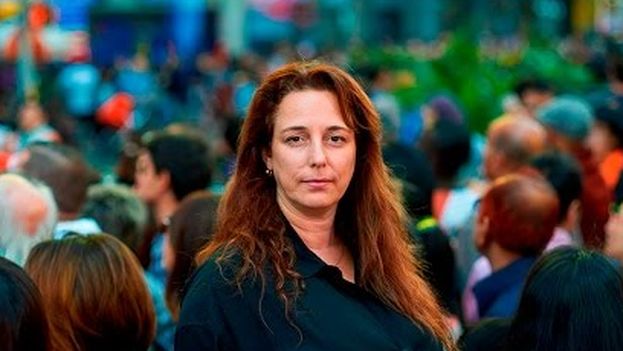
![]() 14ymedio, Havana, 11 June 2018 – The Hannah Arendt Institute of Artivism (Instar) has launched the first independent fund for the creation of audiovisuals in Cuba. The call for project proposals has been posted on the project’s online site, created by the artist Tania Bruguera, and is open from June 8 to September 8, 2018.
14ymedio, Havana, 11 June 2018 – The Hannah Arendt Institute of Artivism (Instar) has launched the first independent fund for the creation of audiovisuals in Cuba. The call for project proposals has been posted on the project’s online site, created by the artist Tania Bruguera, and is open from June 8 to September 8, 2018.
Instar invites “filmmakers and aspiring filmmakers” from all over the country to participate in the first edition of PM: INSTAR fund for audiovisuals in Cuba, the site announces. Those interested can submit unpublished projects that should be the first short film by the director.
Applications are open in fiction, documentary and new media categories, while the projects must not exceed 30 minutes. The projects selected in each category will receive a cash amount of 5,000 CUC.
The Fund seeks to “promote the diversity of voices in the independent Cuban audiovisual sector, promote directors, producers and script writers from under-represented communities and their stories.”
Although “the topic is free and uncensored,” the organizers will give “priority to projects about pressing social issues in Cuba today and in the future” and “innovative methods of audiovisual production will be evaluated and, in the case of the documentary, the rigor of the investigation,” will be considered.
Similarly, the evaluation will consider “projects that assume in their budgets fair pay to the work teams and decent filming conditions.” A frequent complaint in the guild of filmmakers in Cuba is the low salaries and the appalling conditions of the state sector.
Those interested in participating should send their projects by email in PDF format to the electronic address: INSTARaudiovisuales@artivismo.org. The subject line must include the name of the project and a pseudonym.
Instar, based in Havana, is a “space for civic literacy on the Island that emerged as a result of the public action #YoTambienExijo,” which Bruguera carried out in 2014.
Initial reactions to the call from Cuban filmmakers on social networks have been positive. “Excited,” wrote producer Marta María Ramírez on her Facebook profile.
One of the petitions launched by the group El Cardumen in its recent statement “Words from Cardumen, declaration of young Cuban filmmakers,” included among its demands that national institutions create a promotion fund for the production of national cinema. However, Bárbara Betancourt Martínez, Director of Cultural Programs at the Ministry of Culture, described the young people’s statement as “anarchic demagoguery” and stated that they were motivated only by the intention to “raise a hubbub.”
The request for the creation of the fund is a common denominator in the minds of Cuban filmmakers and was one of the demands from the assemblies of filmmakers who made up the G-20.
PM was a documentary by Saba Cabrera Infante and Orlando Jiménez, censored in 1961, because for just a few minutes it showed Cubans dancing and drinking in bars.
The image annoyed the government and the censorship of the film gave rise to a sequence of events eventually became “the PM case.” It was in this context that Fidel Castro condemned intellectuals at the beginning of his mandate, and in a major speech declared: “Within the Revolution, everything; against the Revolution, nothing,” which established the rules that define the cultural policy of the Government still today.
_______________________
The 14ymedio team is committed to serious journalism that reflects the reality of deep Cuba. Thank you for joining us on this long road. We invite you to continue supporting us, but this time by becoming a member of 14ymedio. Together we can continue to transform journalism in Cuba.
